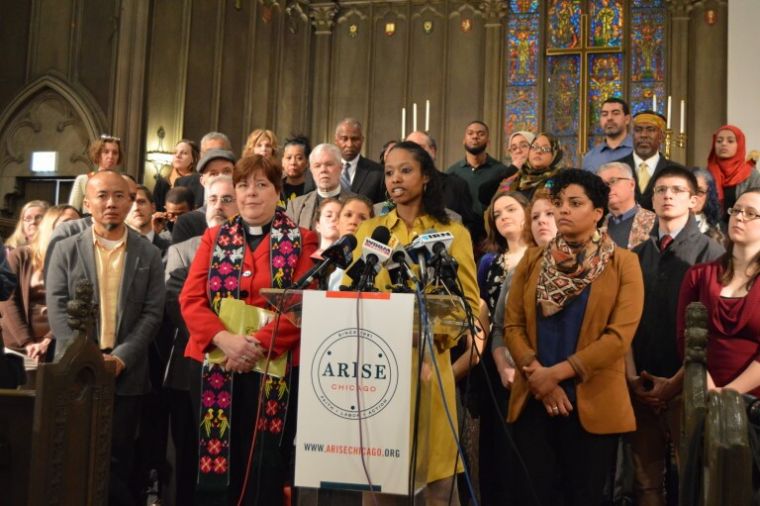After Larycia Hawkins, what next for Wheaton College?

It seems the melancholy saga of Larycia Hawkins and Wheaton College is finally at an end.
The professor who sent the evangelical world into theological meltdown by saying on Facebook that Christians and Muslims "worship the same God" and was facing the termination of her employment is indeed leaving, but with her head held high.
She and the college issued a joint press release two days ago saying they had "come together and found a mutual place of resolution and reconciliation" and had "reached a confidential agreement under which they will part ways". Hawkins says nice things about the college and Wheaton president Philip Ryken says nice things about her. Provost Stanton Jones, who had been in the front line of the battle, released an email apologising for any failings he had shown. In fact, the public demeanor of both sides has been very good throughout; no one has abused anyone and everyone has concentrated on the issues.
However, it is unquestionably Wheaton that has come off worst. Its reputation as an "academically rigorous Christian liberal arts college" has taken a serious blow.
Its actions have met massive resistance from among its own staff, almost 80 of whom urged the college to drop its action against Hawkins, and students, who demonstrated and fasted for her. A group of 20 former students who are now political scientists wrote an open letter to Ryken expressing their feelings about what the college's actions said about academic freedom, saying among other things they were "greatly concerned about the effect this incident will have on Wheaton College graduates pursuing an academic vocation".
Hawkins' defenders – including the college's own faculty diversity committee – said she was the victim of discrimination; the attitude of her attackers, including Franklin Graham, was "Shame on her!"
If the college is wise, it will mount a full-scale review into how things went so badly wrong. Among the issues to consider are indeed questions of diversity and discrimination, communication, accountability and all the other questions of how such an institution governs itself.
However, there's another question, and that is whether Wheaton will look at how it does theology. Because the issue was not one that needed to divide opinion to the extent that it did, as a moment's reflection would have shown. Instead, a knee-jerk reaction has led to a world of pain.
It should be clear enough that the answer to the question, "Do Muslims and Christians worship the same God?" can easily be answered in different ways. Yes, in that Islam belongs to the same historical and cultural family tree as Christianity and that we share, to a greater degree than other religions, a common language about God. No, in that God was incarnate in Christ alone. Wheaton's instinctive exclusion of the former meaning and assumption of heresy has aligned it with an uncompromising, oppositional fundamentalism, one of whose hallmarks is a deep suspicion of Islam.
It is this, rather than failures of process, that casts the longest shadow over the college's future. While Hawkins and the college are parting friends, they are still parting. Any other professors with mildly unorthodox views will regard themselves as warned. Hawkins' experience will not encourage them to test the limits of the college's tolerance.
The danger for Wheaton – arguably the most prestigious of the self-identified evangelical colleges – is that it becomes the scene of a battle between conservatives and moderates reminiscent of the fraticidal struggle that gripped the Southern Baptist Convention during the 1980s, which is described – along party lines – either as a 'conservative resurgence' or a 'fundamentalist takeover'. It would be a pity to see that history repeat itself, and for so little cause.
Follow Mark Woods on Twitter: @RevMarkWoods











